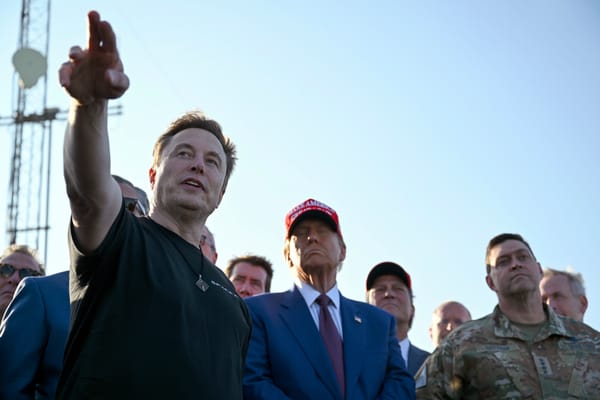In Roman Polanski’s Chinatown (1974), private eye Jake Gittes confronts the villainous oligarch Noah Cross about his scheme to manufacture a drought—diverting water from the San Fernando Valley to drive out residents, devalue the land, and buy it up cheap for a massive reservoir project. “Why are you doing it?” Gittes demands. “How much better can you eat? What can you buy that you can’t already afford?” Cross doesn’t hesitate. “The future, Mr. Gittes,” he belches. “The future!”
This scene reveals the hubris of a wealthy man who, after acquiring more wealth than he could possibly use, has set his sights on achieving greatness and creating a legacy. People like Cross don’t want to just be remembered as men who amassed fortunes, but as “great men” who delivered the future of human civilization.
In our time, Donald Trump and Elon Musk embody the latest iterations of this archetype. As the second Trump administration has set about ushering in post-neoliberalism by restructuring the administrative state at home and overhauling the world order for the first time since the Reagan and Thatcher revolution, its leading figures have also sketched out their visions for the future, which they firmly believe still belongs to America.
